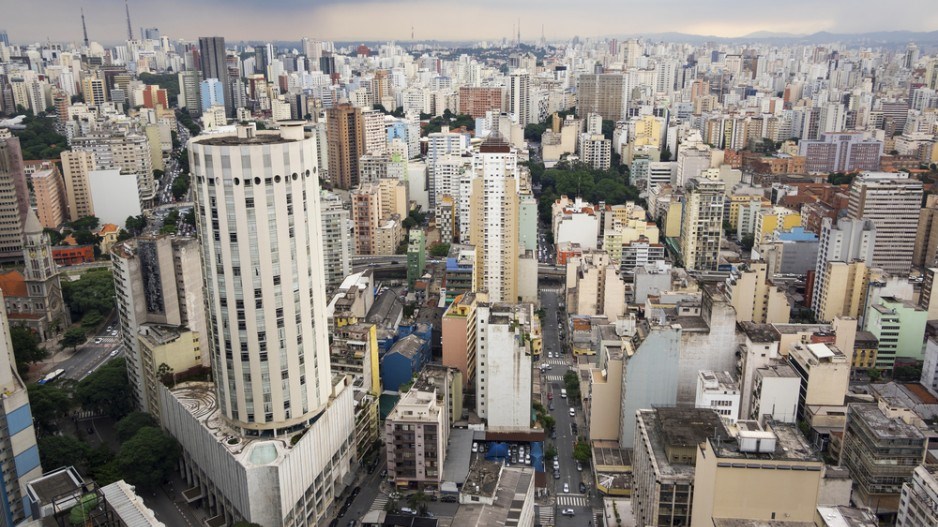Spin a compass in Vancouver and the business community will likely orient it west across the Pacific when looking for new economic opportunities.
But as Ottawa pushes trade missions and free trade agreements (FTAs) in Latin America, Canada’s gateway city to Asia is slowly turning that compass needle south, beyond the U.S. border.
Over the past five years, the federal government has sponsored five trade missions to Latin America, which shared $60.1 billion in two-way trade with Canada in 2014.
“We should be, as a Canadian economy, really orienting to the very large opportunities that South America has to offer us,” said Vancouver-based Ondine Biomedical CEO Carolyn Cross, who travelled to Brazil last month as part of a trade mission led by Ottawa.
Brazil, which the International Monetary Fund pegged as the world’s seventh-largest economy in 2015, imports $2.1 billion from Canada annually. Meanwhile, Canadian direct investment in the country amounted to $10.3 billion in 2014, according to Export Development Canada (EDC) data.
Cross said scalability can be an issue in the life sciences sector when manufacturing products and moving them into the U.S. market. But by making strategic partnerships in Brazil, she said, cheap labour and larger markets come easier.
“We have core values and similarities from business and cultures that we can tap into,” she said. “Whereas in Asia, a lot of our technologies just get stolen. … Whether it’s corruption or theft, Canadian companies just don’t have the money to police or monitor what’s going on there.”
While EDC’s quarterly risk report determined that Brazil will benefit from weaker oil prices, corruption investigations could stymie economic growth in 2015.
“Brazil presents many opportunities for Canadian companies in a number of sectors; however, expensive tax regimes, heavy bureaucracy and strong local and foreign competition continue to present challenges for Canadian exporters and investors,” the EDC stated.
Latincouver cultural and business society director Paola Murillo facilitates quarterly conferences as part of her organization’s ExpoPlaza Latina series, which promotes economic opportunities in Latin America. She told BIV local businesses have not been doing enough to capitalize on the growing number of Latin American immigrants entering the region.
Between 2001 and 2011, Statistics Canada reported, the Latin American population in B.C. jumped 48% to 35,465 from 23,885. The figure is still dwarfed by the 1.1 million Canadians of Asian descent living in the province, but Murillo said there’s tremendous room for businesses to take advantage of the economic and political infrastructure Latin American countries have been establishing in B.C.
“Today, we have 14 Latin American consulates who have locally based offices in Vancouver. Also, there are already over two million Canadian tourists travelling to Latin America every year.”
Even as governments draw Asian companies to the West Coast with such programs as HQ Vancouver, and Victoria continues to push for liquefied natural gas facilities that would supply energy to Asia, Ottawa has been bolstering its own trade initiatives in Latin America.
In 2013, the Department of Foreign Affairs, Trade and Development launched its Global Markets Action Plan and began identifying certain countries in the region as priority markets – the idea being, for example, that a Canadian mining company would have more success in a Latin American country with a less developed mining sector. Canada already has seven FTAs signed in the region with countries including Peru, Panama and Chile.
Meanwhile, it has also inked foreign investment promotion and protection deals with six nations.
“We have seen sustained engagement in Latin America from Canadian companies across a variety of sectors as a result of these agreements,” Max Moncaster, International Trade Minister Ed Fast’s press secretary, told BIV in an email. “Whether it is in Asia, Europe or Latin America, businesses know that preferential market access gives them an advantage over their competitors and allows them to expand and create jobs.”
@reporton



